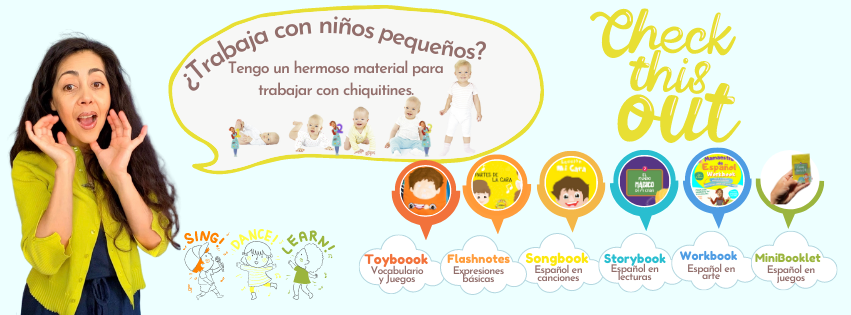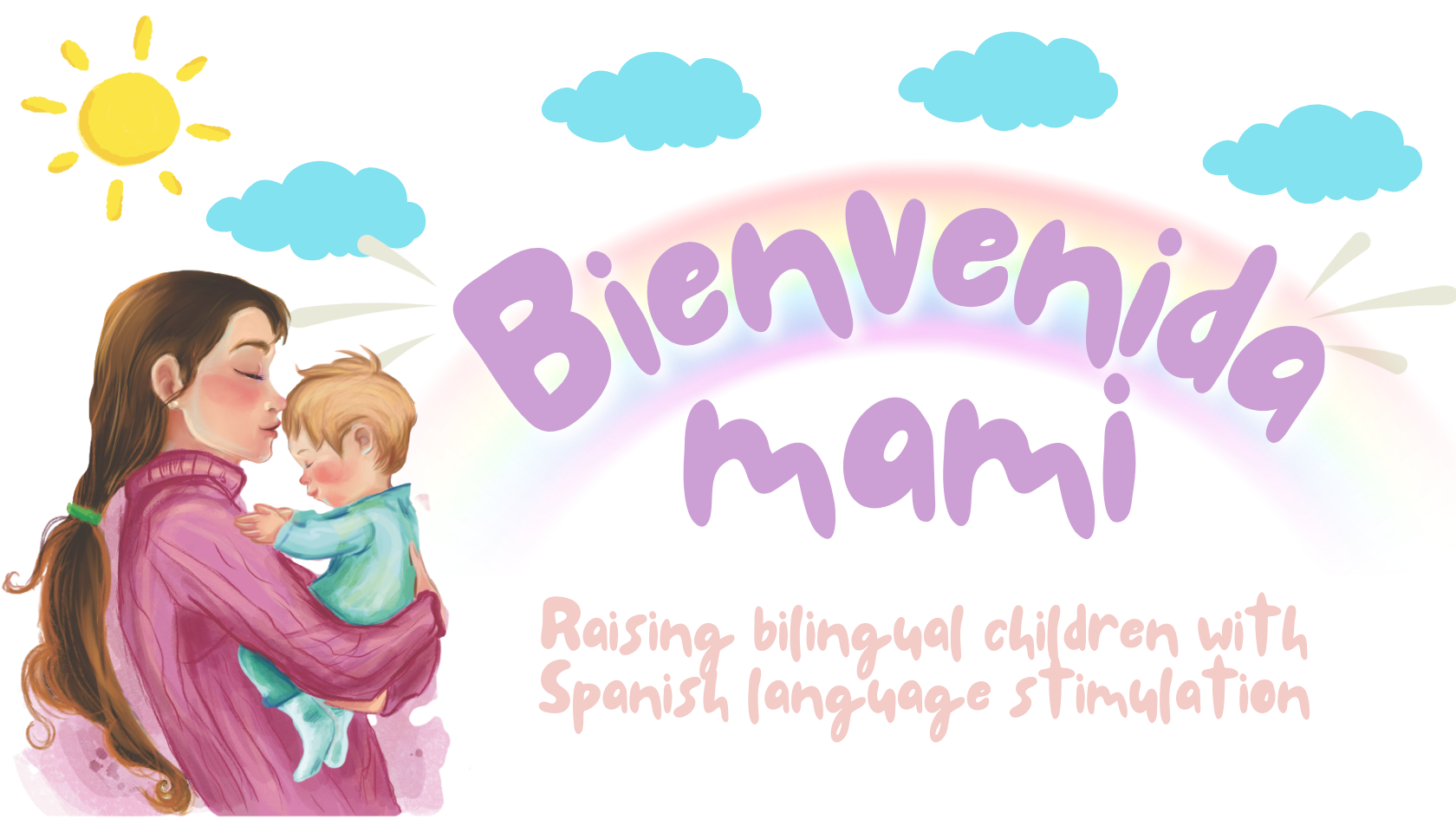
We’re so excited to welcome you and your little one to our Mamaestra & Me: Spanish Coaching Circle — a joyful space for moms and babies (ages 0–36 months) to connect, sing, and explore early Spanish together in nature at the heart of San Francisco: "The Presidio" or ONLINE for the rest of the world.
🌿 What to Expect:
-
45 minutes of Spanish immersion through music, baby talk, and lullabies
-
Open-air circle time to connect with other moms (Charlar)
-
Cheat sheets to support you if you’re new to Spanish
-
Gentle language coaching (mini Spanish lesson) for YOU + sweet bonding moments with your baby
-
Build confidence in speaking and singing en español from the start!
👶 Ages: We’re starting with babies 0 to 36 months — and growing from there!
📚 Our Levels (Launching as groups form):
Each level opens with a minimum of 5 families enrolled:
-
Level 1 a: Newborn to 6 months – Gentle rhythms, lullabies, early sounds
-
Level 1 b: 6 to 9 months – Songs, gestures, early signs
-
Level 1 c: 9 to 12 months – Repetition, play, and first words (onomatopeyas)
Level 2: Toddlers
Lever 3: Preschoolers
✨This is more than a class. It’s your connection time.

Let's review about each level and what we can learn:
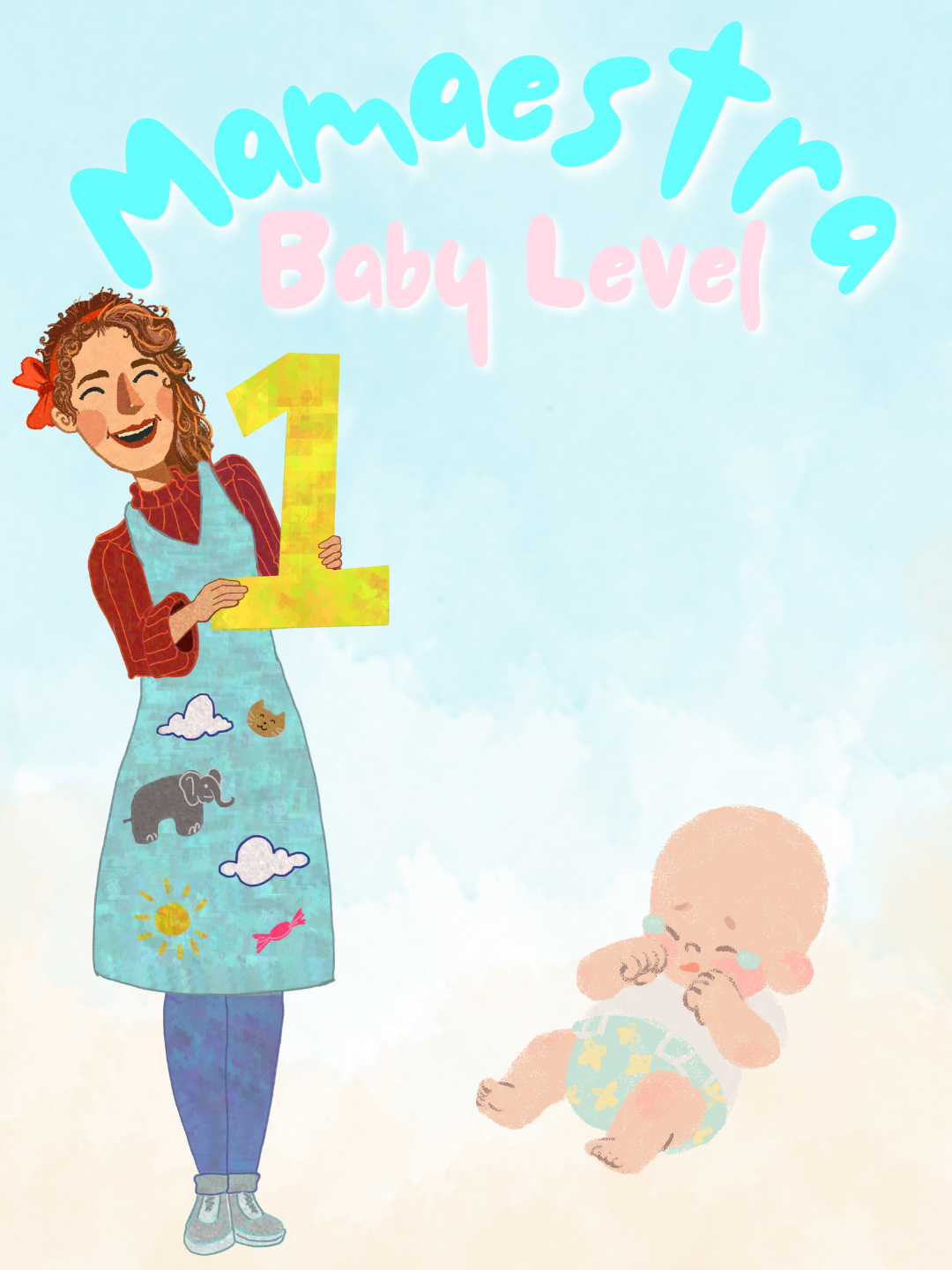
Mamaestra Level 1: Pre-verbal
"Babies are born pre-verbal, but that doesn’t mean they’re too young for language. In fact, they’re ready to absorb multiple languages from the start. Mamaestra believes early language stimulation is key, so we’ve created simple tools to help moms build meaningful language experiences at home.
If your baby is not a baby anymore, explore my other courses.
Join our Baby-Level classes with 50 lullabies—one for each week of your baby’s first year—plus everyday Spanish vocabulary.
No Spanish? No problem!
We’ll guide you with pronunciation, songs, and simple routines to connect through language.
🎵 30-minute classes full of songs, gestures, and games—perfect for your little one’s early learning. (PROSODY matters.)
Because it’s never too early to grow up bilingual!

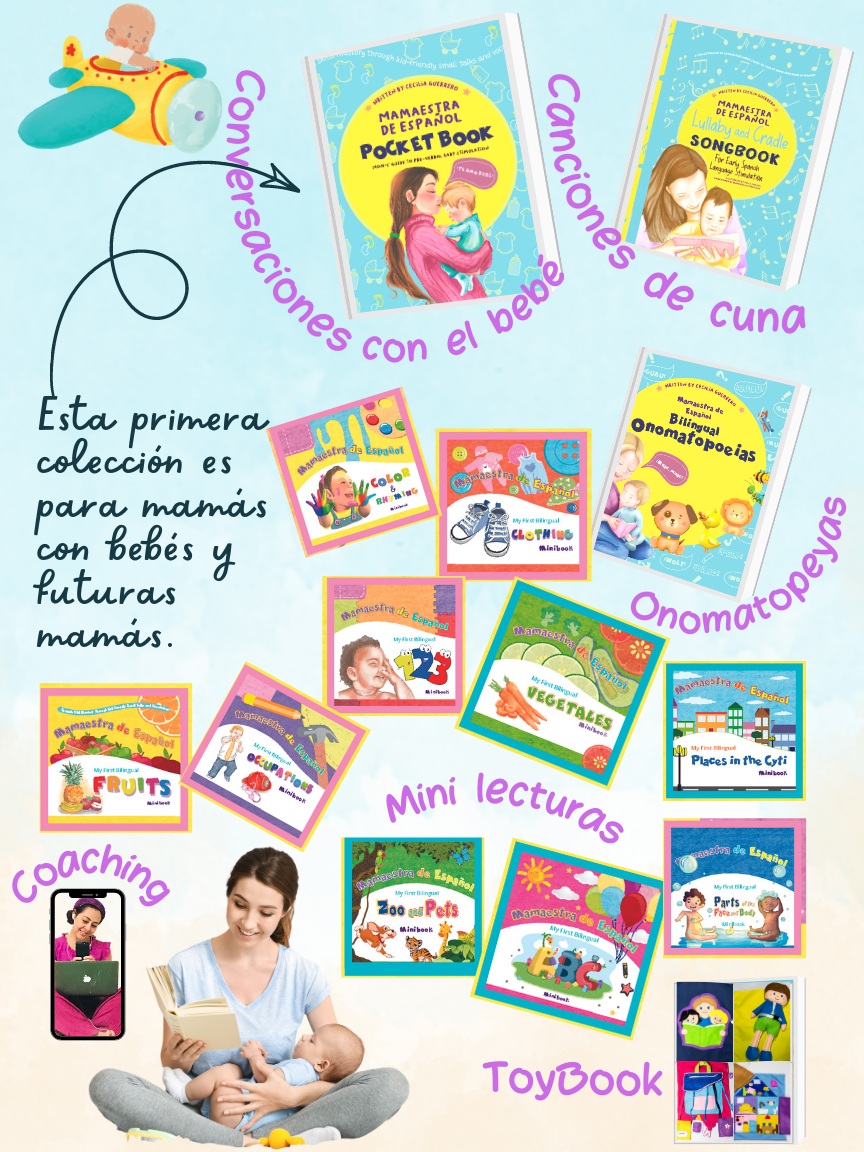
What are you waiting for?
Join our “Baby-Level” Spanish Classes!
Discover fun, easy ways to introduce Spanish with tools made just for you and your baby:
📚 Mamaestra PocketBook & 10 MiniBooks
Daily words in English & Spanish—covering body parts, family, food, animals, and more.
🎵 Cradles & Lullabies Songbook
Sing your way through baby’s milestones—like crawling and walking—while building language.
🧸 Mamaestra Toybook
Hands-on fun that helps connect words with actions and objects.
Our songs and tools fit naturally into your baby’s world—making Spanish learning joyful from day one.
Sign up below if you’re part of this group!
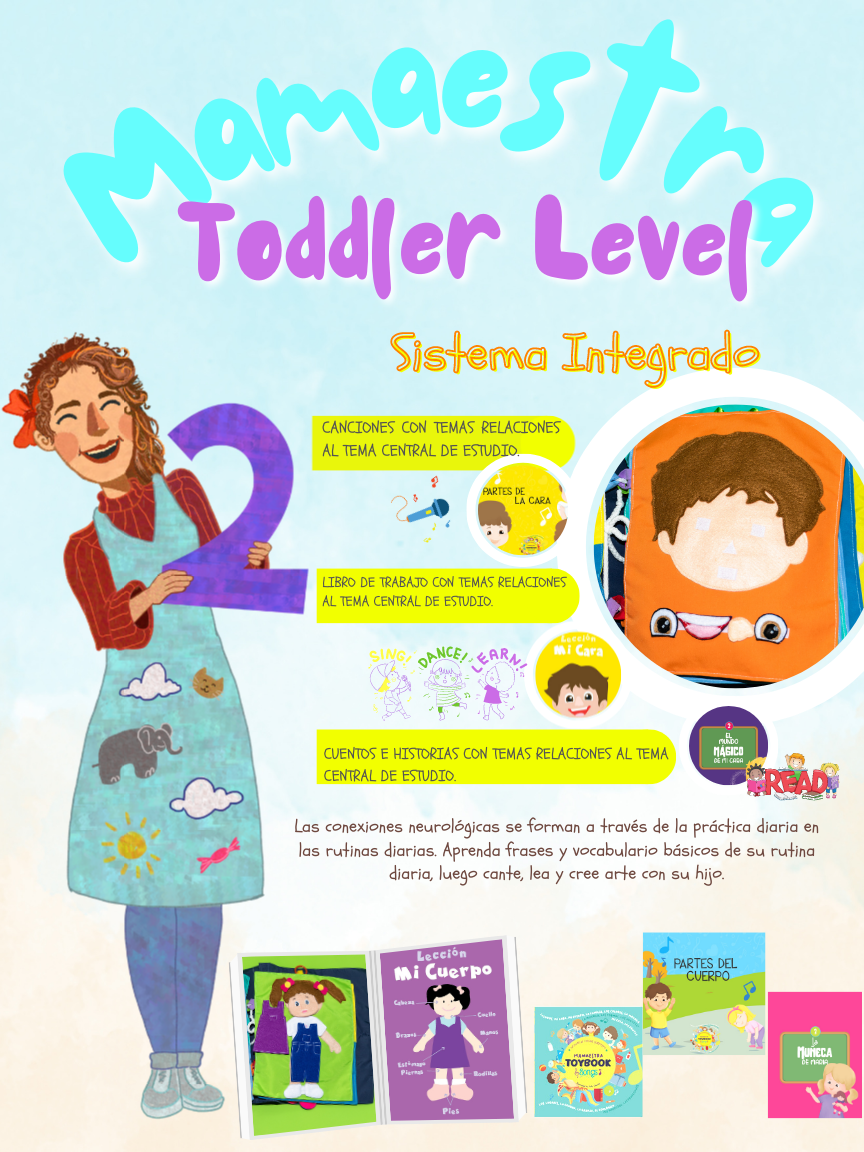
Mamaestra Level 2: Early Verbal Stage
In your baby’s second year, we begin to encourage more Spanish imitation and word production.
Thanks to Mamaestra Baby (Level 1), your child will begin to:
-
Imitate sounds like “ma-ma,” “pa-pa,” “ta-ta.”
-
Say first words: mamá, papá, tete, meme, pato.
-
Understand phrases like “Ven acá,” “Dame,” “Toma.”
-
Recognize daily words: zapato, frutas, biberón, manta, parque.
-
Respond to simple actions: “Dame un beso,” “Bravo” (clap), “Dame cinco.”
Level 2 builds on this foundation, guiding your child toward speaking in Spanish naturally.
📚 All-in-One Learning Mamaestra ToolKit
-
Toybook: Teaches key vocabulary across 20 fun topics (animals, colors, shapes, numbers, and more).
-
Songbook: Catchy songs that reinforce vocabulary.
-
Storybook: Simple, relatable stories using the same words.
-
Workbook: Fun activities to apply what you've learned.
🎤 Led by a Teacher-Author
In 30-minute sessions, you'll learn how to use all the materials through games and songs—so you can keep the learning going at home!
Sign up below if you’re part of this group!
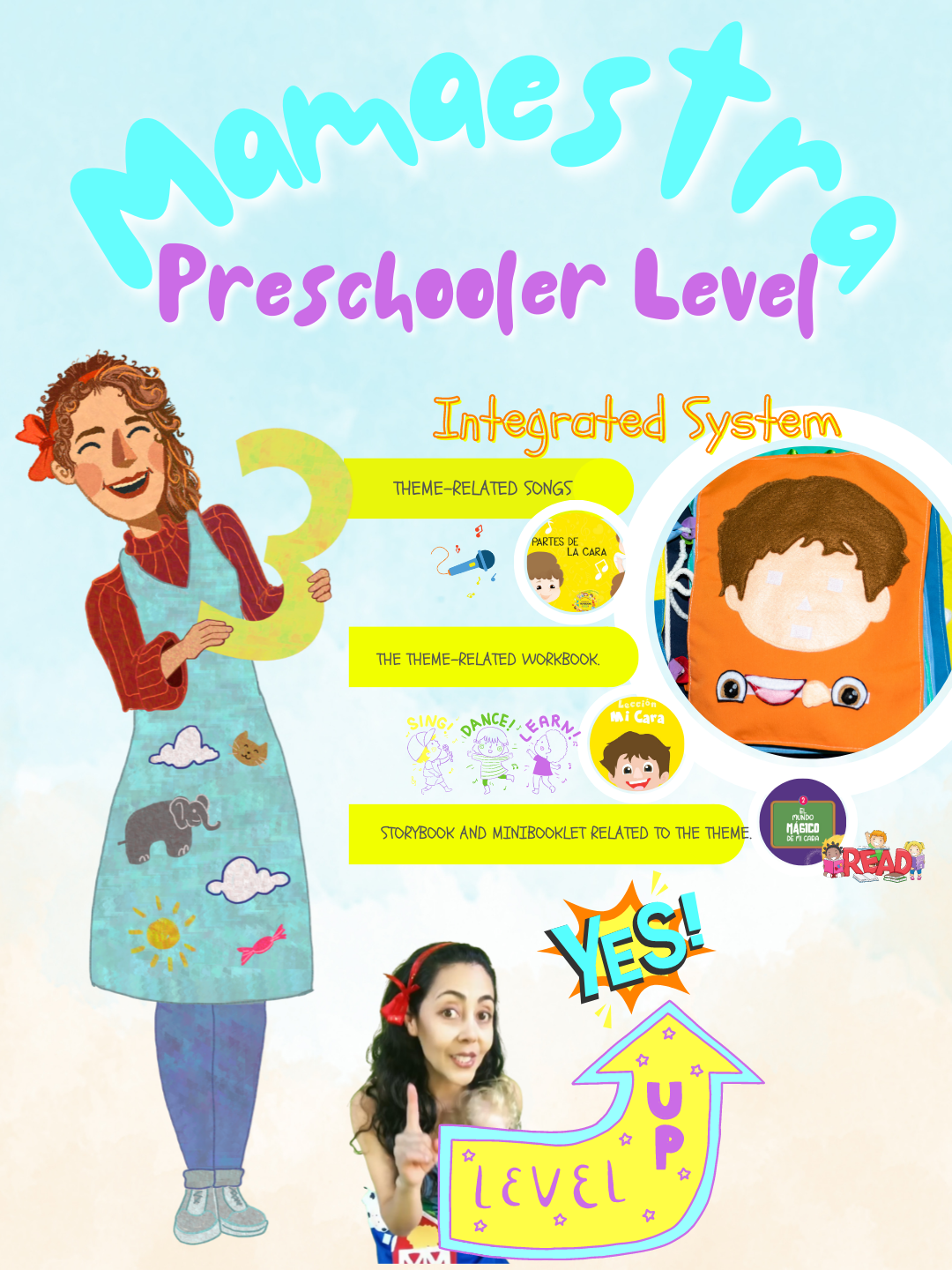
Welcome to Mamaestra III: Verbal & Production Stage
If you’ve completed Mamaestra I and II, your child likely knows over 100 words and understands key questions like:
¿Qué es esto?, ¿Dónde está…?, ¿Cómo se dice?, ¿Quieres?, and expressions like:
¡Toma!, ¡Dame!, ¡Vamos!
At this stage, children may start forming short sentences like:
“Yo quiero”, “Me gusta”, “No me gusta”
(“I want,” “I like it,” “I don’t like it”).
🎓 This means their listening and language production skills are growing fast!
👉 If your child is ready for more, check out our advanced courses below.
Mamaestra III – Ready for Full Sentences and School Skills!
In this course, we’ll use the workbook, songbook, storybook, and toybook to help your child move from single-word answers to full sentences.
👩👧 Example:
Mom: ¿Quieres agua o leche?
Child: Yo quiero leche.
(Not just "leche"—we aim for full sentence responses!)
🗣️ What we’ll focus on:
-
Complex Spanish sounds: g, f, s, r, l, ch
-
Rhyming and early literacy
-
Simple letters and numbers
-
Fine motor development through hands-on play
This level is designed to prepare your child for preschool or kindergarten in a fun, interactive, and meaningful way.
Ready to SING UP?
|
Mon-Fri Afternoons |
Saturday Mornings |
Saturdays Afternoon |
|---|---|---|
|
3:00 - 3:30 |
7:00 - 7:30 |
3:00 - 3:30 |
|
4:00 - 4:30 |
8:00 - 8:30 |
4:00 - 4:30 |
|
5:00 - 5:30 |
9:00 - 9:30 |
5:00 - 5:30 |
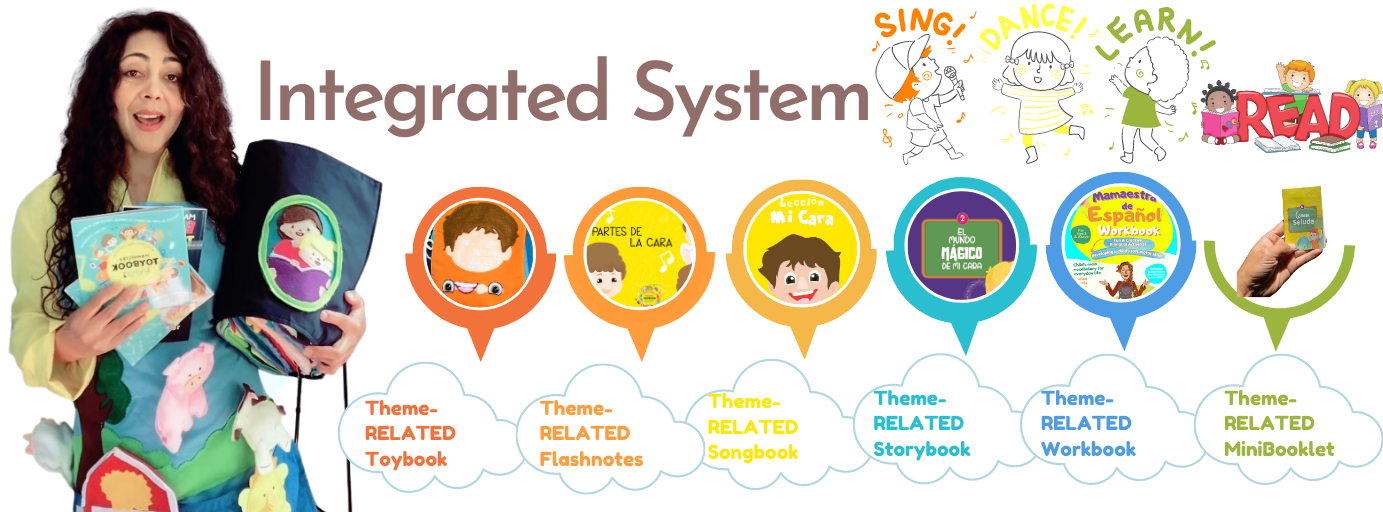
$25 Online Spanish Coaching – Book Now🌀 $45 Saturday Spanish Circle Time – Join Us!
Once payment is made, we will schedule the sessions at your convenience or Saturdays in San Francisco.

